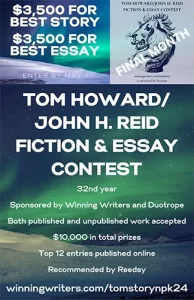Zoland Poetry – 2009
Number 3
2009
Annual
Sima Rabinowitz
Zoland Poetry is an annual review of poems, translations, and interviews edited by Roland Pease, editor of Zoland Books. In the journal, as well as at the press, Pease favors work with unusual voices and bold, unconventional imagery. These poems tend to provoke, probe, unsettle, and question. There are no cookie-cutter occasional pieces here; no easy slogans; no casual-chats turned verse; and no small contented moments in the park. At the same time, there are no dense, obscure poems intended to baffle, rather than elucidate. All of which is to say that this issue is exciting, original, and a true contribution to the reading scene.
Zoland Poetry is an annual review of poems, translations, and interviews edited by Roland Pease, editor of Zoland Books. In the journal, as well as at the press, Pease favors work with unusual voices and bold, unconventional imagery. These poems tend to provoke, probe, unsettle, and question. There are no cookie-cutter occasional pieces here; no easy slogans; no casual-chats turned verse; and no small contented moments in the park. At the same time, there are no dense, obscure poems intended to baffle, rather than elucidate. All of which is to say that this issue is exciting, original, and a true contribution to the reading scene.
International writing in this issue includes poems, essays, and interviews by 15 poets, translated – competently and often elegantly – from Portuguese, Chinese, French, Vietnamese, Hebrew, Bulgarian, Spanish, Romanian, Latvian, Ukrainian, and French. I assume that most of this work is not readily accessible to most readers in the States, even for those writers who are well established and widely published in their own countries (Mexican poet María Banda, Welsh poet Menna Elfyn, Portuguese poet Nuno Júdice, and Russian poet Andrei Sen-Senkov, to name a few). In this sense, Zoland Poetry is providing a valuable service to American readers of poetry.
There isn’t anything not worth reading, and this is a long, rich issue that deserves slow, concentrated attention. The poems, common tendencies I described above notwithstanding, vary widely in style and theme, from Júdice’s somewhat traditional lyric “Elegy” (“Not even the long days separate me from your image. / I open it in the mirror of the monotonous sky or / let the afternoon prolong it on the tedious / horizon”) to Sen-Senkov’s “Independent Tea Films,” eight brief poetic “films” in short verse form, inspired by teas (“Mo Li Lo See. ‘Tightly rolled tender silver buds.’ A colorful green tea with a distinct aroma and taste.”). The “films” themselves are politically charged, even violent, but somehow in subtle, almost deceptive ways.
More philosophical in approach are prose poems by Bulgarian poet Tsvetanka Elenkova, such as “Inanimate Nature,” which begins: “Physics is a lie. Everything about inanimate nature is a lie.” And there are many poems that defy easy categorization, such as Chinese poet Zhai Yongming’s “My Younger Brother in the Water,” part family narrative, part lyrical inquiry into the meaning of self, other, family, exile, home, and memory:
Our parents over a thousand miles away
Our flesh and blood in the water
Our shoes sunk in the fine dust of the road
We twins
Neither set lose nor tethered shedding so few tears
Helmets and inhuman eyes
Sinking to the bottom of the water Brother
I only love those wild acres
Like an old friend near to my heart
O the water is up to our knees
Poems by US writers, too, reflect a wide variety of styles and themes, from Gary Fincke’s “Sitcktoitveness,” a consideration of an “allegorical temple” constructed from hard coral by a man in Florida and the labor at odd tasks (“my twenty-one books”) in which we are all engaged to a collaborative poem by Philip Jenks & Simone Meunch, couplets written as a letter to “Dear Body.” I liked very much a prose poem by Nick Twemlow, “Palm Trees/13,” for its merging of casual language and poetic sensibilities and Joshua Marie Wilkinson’s “Swamp Isthmus (part 1)” for the same reason. Finally, not to be missed, are excerpts from “Notebook of Disagreements” by Nathanaël (Nathalie Stephens), the type of work that is sometimes called “poetry theory,” and an interview with her by Wilkinson. The issue includes an illuminating interview, as well, with Nathaniel Tarn, along with several of his poems.
In his brief editor’s note, Pease concludes: “What ultimately matters is reading and reacting to everything you can.” And he has given us a terrific opportunity with this issue to do just this.
[www.zolandpoetry.com/]




